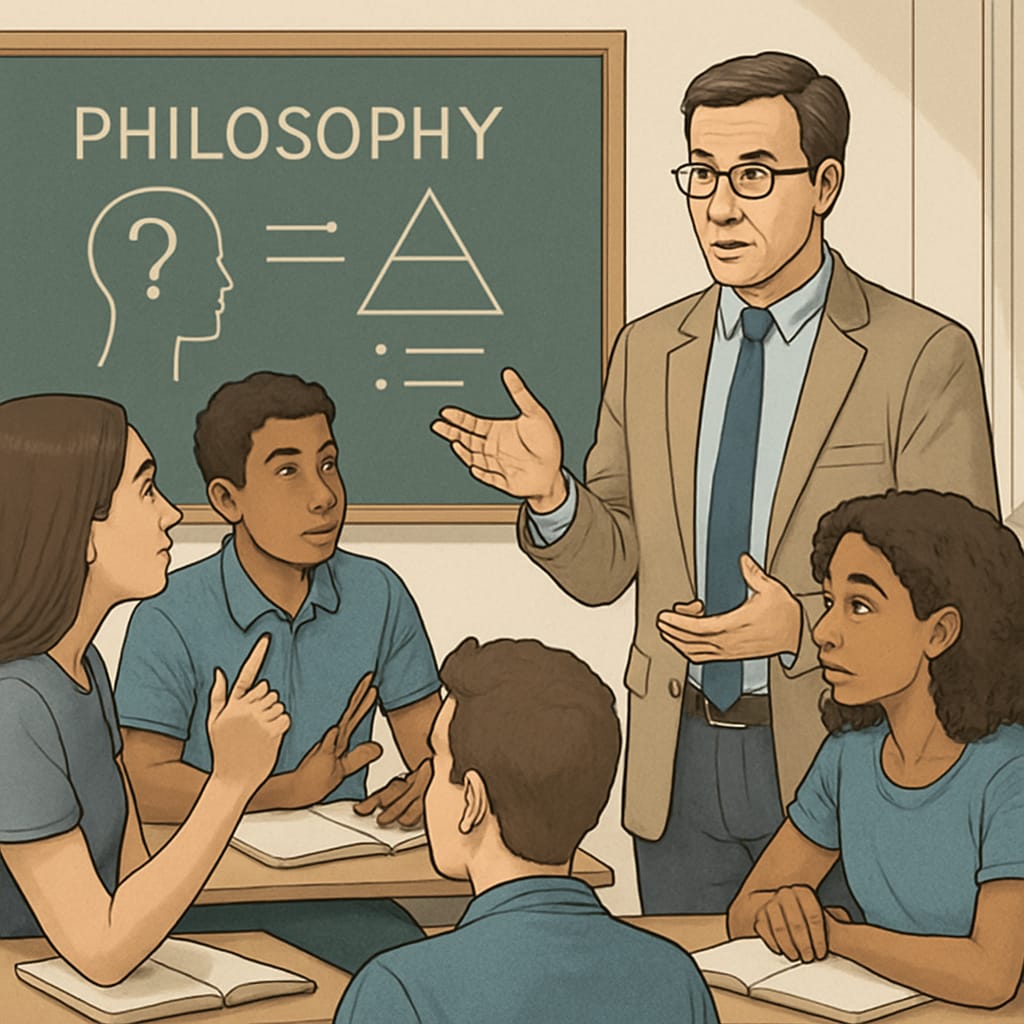Philosophy teachers, volunteers, and education innovators—this is your call to action! We invite you to join a groundbreaking social experiment aimed at introducing philosophical thinking into K12 education. By integrating philosophy, we hope to equip students with the critical thinking skills and ethical foundations necessary to navigate a complex world.
Why is philosophy vital for young learners? While traditional subjects focus on facts and processes, philosophy offers tools to question, reason, and reflect. For example, teaching concepts like logic, ethics, and epistemology can help students develop lifelong skills in decision-making and understanding diverse perspectives.

The Role of Philosophy in K12 Education
Philosophy is often seen as a discipline reserved for higher education, but its principles are deeply relevant to younger audiences. Introducing philosophy into K12 classrooms can nurture critical thinking and encourage students to explore fundamental questions about life, society, and their own identities. For example, studies on critical thinking suggest that early exposure to philosophical debates can enhance cognitive skills like analysis and problem-solving.
Moreover, philosophy promotes empathy and tolerance. When students learn to consider opposing viewpoints and debate constructively, they grow into more thoughtful and inclusive individuals. As a result, philosophy can play a pivotal role in fostering a well-rounded and socially conscious generation.
Join the Social Experiment: Calling Philosophy Teachers
We are looking for philosophy teachers and volunteers who are passionate about education and willing to contribute their expertise to this initiative. Our social experiment involves designing and testing philosophy-based curricula tailored to various K12 age groups. Participants will collaborate with educators to adapt philosophical topics for younger audiences and measure the impact on students’ cognitive and emotional development.
Whether you’re a university professor, a retired educator, or simply someone with a deep love for philosophy, we welcome your involvement. As part of the experiment, you will help shape innovative lesson plans, mentor teachers, and evaluate student progress.

How to Get Involved
Joining the experiment is simple. Interested individuals can apply via our online portal, where you’ll find detailed information about the project scope, timelines, and expectations. For more information on philosophy’s impact in education, visit Philosophy of Education on Wikipedia.
- Step 1: Fill out the volunteer application form.
- Step 2: Attend a virtual orientation session.
- Step 3: Collaborate with our team to develop and implement the curriculum.
By participating, you’ll not only contribute to education innovation but also gain valuable insights into how philosophy can transform young minds.
Why This Matters
In today’s fast-paced, technology-driven world, students often lack opportunities to slow down and think critically. Philosophy fills this gap by teaching them to question assumptions, analyze arguments, and reflect on their own values. As a result, it prepares them not just for academic challenges, but for life itself.
Through this social experiment, we aim to demonstrate the tangible benefits of philosophy in education and inspire broader adoption of philosophical thinking in schools. Together, we can empower the next generation to think deeply, act ethically, and engage meaningfully with the world.
Readability guidance: This article uses short, clear paragraphs and structured sections to ensure accessibility. Lists summarize key points, and transitions like “for example” and “as a result” ensure a smooth flow. Images are placed strategically to enhance engagement.


